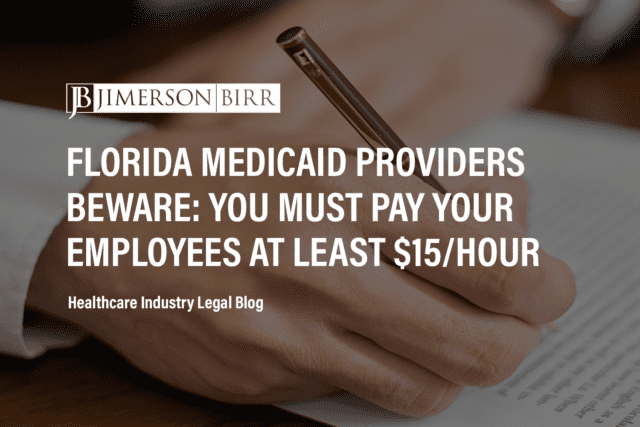How do healthcare investigations affect companies?
Healthcare investigations can have profound effects on companies across the healthcare industry. Firstly, these investigations can lead to substantial financial repercussions. If found guilty of violating healthcare laws and regulations, companies may face hefty fines, civil monetary penalties, and restitution requirements. Moreover, exclusion from participation in federal healthcare programs such as Medicare and Medicaid can severely impact revenue streams. The financial strain resulting from investigations can hinder a company’s ability to invest in growth opportunities, expand services, or maintain competitive pricing, ultimately affecting its long-term financial health.
Secondly, the reputational damage caused by healthcare investigations can be significant. Allegations of fraud, abuse, or regulatory violations can tarnish a company’s reputation and erode trust among patients, healthcare providers, business partners, and the public. Negative publicity surrounding investigations can lead to decreased patient volume, loss of business contracts, and damage to brand equity. Rebuilding trust and repairing reputational harm can be a lengthy and challenging process, impacting a company’s ability to attract new customers and retain existing ones.
Furthermore, healthcare investigations can disrupt company operations and strain resources. Companies may need to allocate substantial time, personnel, and financial resources to respond to inquiries, produce documentation, and participate in legal proceedings. Operational disruptions can impede the delivery of healthcare services, delay strategic initiatives, and increase administrative burdens. Additionally, the uncertainty and distraction caused by investigations can affect employee morale, productivity, and retention, further exacerbating operational challenges. Need help regarding state and federal healthcare investigations? Schedule your consultation today with a top healthcare attorney.
In Florida, which laws and regulations apply to state and federal healthcare investigations? · False Claims Act (31 U.S.C. §§ 3729-3733 The federal FCA applies to healthcare investigations conducted by federal agencies such as the Department of Justice (DOJ) and the Office of Inspector General (OIG). It prohibits knowingly submitting false or fraudulent claims for payment to the federal government, including Medicare and Medicaid. · Florida False Claims Act (Florida Statutes Sections 68.081-68.092): Modeled after the federal False Claims Act, the FFCA allows the state of Florida to pursue civil actions against individuals and entities that submit false or fraudulent claims for payment to the government, including Medicaid · Anti-Kickback Statute: The federal AKS prohibits offering, paying, soliciting, or receiving anything of value in exchange for referrals of federal healthcare program business, including Medicare and Medicaid. Violations of the AKS can lead to federal healthcare investigations and enforcement actions. · Stark Law: The federal Stark Law prohibits physicians from referring Medicare patients for certain designated health services to entities with which they have financial relationships, unless specific exceptions apply. Violations of the Stark Law can trigger federal healthcare investigations and enforcement actions. · Health Insurance Portability and Accountability Act (HIPAA): HIPAA regulations govern the privacy and security of protected health information (PHI) and may be implicated in healthcare investigations related to data breaches, unauthorized disclosures, or HIPAA violations.
What are common issues regarding state and federal healthcare investigations that lead to litigation?
Common issues regarding state and federal healthcare investigations that frequently lead to litigation include:
· Billing Fraud and False Claims: Healthcare investigations often involve allegations of billing fraud and the submission of false claims for reimbursement to government healthcare programs such as Medicare and Medicaid. This may include billing for services not provided, upcoding (billing for a more expensive service than what was actually provided), unbundling (billing separately for services that should be billed together), and billing for medically unnecessary services.
· Healthcare Fraud and Abuse: Investigations may uncover a range of healthcare fraud and abuse issues, including kickbacks, physician self-referrals, false certifications, patient inducements, off-label marketing of pharmaceuticals, and improper coding and documentation practices. These violations can lead to both civil and criminal liability under state and federal laws.
· Quality of Care Concerns: Investigations may also focus on allegations of substandard patient care, patient safety violations, and healthcare facility deficiencies. These issues may arise from complaints by patients, whistleblowers, or regulatory agencies, and can lead to litigation over negligence, malpractice, and violations of state licensing and accreditation requirements.
· Medicare and Medicaid Fraud: Investigations frequently target fraudulent schemes involving Medicare and Medicaid, such as billing for medically unnecessary services, falsifying documentation, phantom billing, and identity theft. These investigations may result in civil enforcement actions, criminal prosecutions, and False Claims Act litigation.
· Compliance Program Deficiencies: Investigations may identify deficiencies in healthcare compliance programs, including inadequate training, oversight, monitoring, and reporting mechanisms. Companies that fail to implement effective compliance programs may face heightened scrutiny and legal liability in healthcare investigations.
We are value-based attorneys at Jimerson Birr, which means we look at each action with our clients from the point of view of costs and benefits while reducing liability. Then, based on our client’s objectives, we chart a path to seek appropriate remedies. To determine whether your unique situation may necessitate litigation, please contact our office to set up your initial consultation.
What steps should businesses take to minimize the risk of litigation over state and federal healthcare investigations?
To minimize the risk of litigation over state and federal healthcare investigations, businesses should take several proactive steps:
· Implement Robust Compliance Programs: Develop and implement comprehensive compliance programs tailored to state and federal healthcare laws and regulations. These programs should include written policies and procedures, employee training, regular auditing, and monitoring to ensure adherence to compliance requirements.
· Stay Informed and Updated: Regularly monitor changes in state and federal healthcare laws, regulations, and enforcement priorities. Stay informed about industry best practices, advisory opinions, and guidance issued by regulatory agencies to proactively address compliance risks.
· Establish Clear Policies and Procedures: Establish clear policies and procedures governing billing practices, financial relationships, referral arrangements, and other healthcare operations. Ensure that employees understand their obligations under state and federal laws and have access to resources for compliance guidance.
· Conduct Regular Audits and Monitoring: Implement regular audits and monitoring processes to identify and address potential compliance issues proactively. Monitor billing practices, coding procedures, documentation, and financial arrangements to detect and prevent fraudulent or improper conduct.
· Promote a Culture of Compliance: Foster a culture of compliance within the organization by emphasizing the importance of ethical conduct, transparency, and integrity in all business operations. Encourage leadership to set a positive example and prioritize compliance efforts at all levels of the organization.
· Provide Ongoing Training and Education: Provide regular training and education to employees on state and federal healthcare laws, regulations, and compliance requirements. Offer training sessions, workshops, and resources to reinforce compliance awareness and promote ethical decision-making.
· Establish Reporting Mechanisms: Implement clear channels for employees to report suspected compliance violations or concerns without fear of retaliation. Encourage employees to report potential issues internally and promptly investigate and address reported concerns.
· Respond Promptly to Compliance Concerns: Take immediate action to investigate and address any reported compliance concerns or potential violations. Implement corrective measures as needed, including disciplinary action, process improvements, and restitution if appropriate.
Frequently Asked Questions
What triggers state and federal healthcare investigations?
Healthcare investigations can be triggered by various factors, including complaints from whistleblowers, audits conducted by regulatory agencies, data analytics identifying anomalies in billing or claims data, and referrals from other government agencies or law enforcement entities.
Who conducts state and federal healthcare investigations?
State healthcare investigations may be conducted by agencies such as state Medicaid Fraud Control Units (MFCUs), state licensing boards, and departments of health. Federal healthcare investigations are typically conducted by agencies such as the DOJ, Office of Inspector General, Centers for Medicare & Medicaid Services, and other federal law enforcement agencies.
How long do state and federal healthcare investigations typically take?
The duration of healthcare investigations can vary widely depending on factors such as the complexity of the case, the volume of evidence, the cooperation of the parties involved, and the resources of the investigating agency. Investigations may take months or even years to complete.
Have more questions about healthcare investigations?
Crucially, this overview of healthcare investigation does not begin to cover all the laws implicated by this issue or the factors that may compel the application of such laws. Every case is unique, and the laws can produce different outcomes depending on the individual circumstances.
Jimerson Birr attorneys guide our clients to help make informed decisions while ensuring their rights are respected and protected. Our lawyers are highly trained and experienced in the nuances of the law, so they can accurately interpret statutes and case law and holistically prepare individuals or companies for their legal endeavors. Through this intense personal investment and advocacy, our lawyers will help resolve the issue’s complicated legal problems efficiently and effectively. Having a Jimerson Birr attorney on your side means securing a team of seasoned, multi-dimensional, cross-functional legal professionals. Whether it is a transaction, an operational issue, a regulatory challenge, or a contested legal predicament that may require court intervention, we remain tireless advocates at every step. Being a value-added law firm means putting the client at the forefront of everything we do. We use our experience to help our clients navigate even the most complex problems and come out the other side triumphant.
If you want to understand your case, the merits of your claim or defense, potential monetary awards, or the amount of exposure you face, you should speak with a qualified Jimerson Birr lawyer. Our experienced team of attorneys is here to help. Call Jimerson Birr at (904) 389-0050 or use the contact form to schedule a consultation.

We live by our 7 Superior Service Commitments
- Conferring Client-Defined Value
- Efficient and Cost-Effective
- Accessibility
- Delivering an Experience While Delivering Results
- Meaningful and Enduring Partnership
- Exceptional Communication Based Upon Listening
- Accountability to Goals









